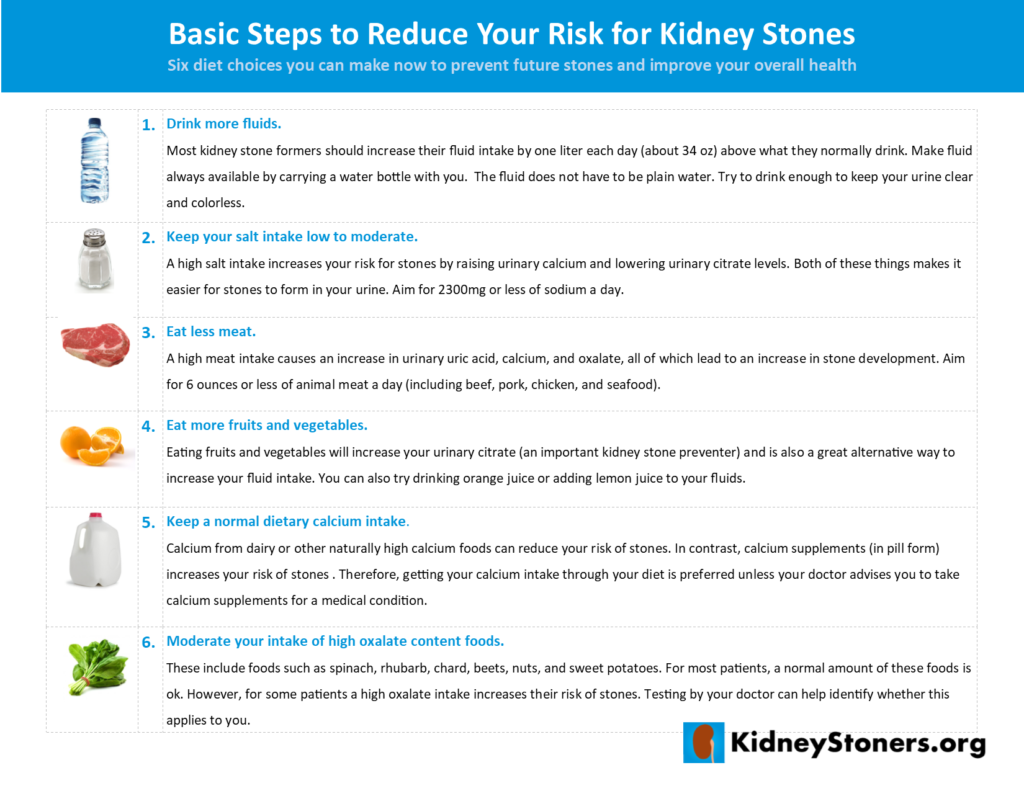Six diet choices you can make now to prevent future stones and improve your overall health.
Making the right diet decisions to lower your stone risk can seem confusing. We break it down for you into six simple steps in our dietary prevention handout, available below in English and now also in Spanish.
Follow these recommendations and you will not only help yourself to avoid future stones but will also boost your overall health goals.

#1 Drink more fluids.
Most kidney stone formers should increase their fluid intake by one liter each day (about 34 oz) above what they normally drink. Make fluid always available by carrying a water bottle with you. The fluid does not have to be plain water. Try to drink enough to keep your urine clear and colorless.
#2 Keep your salt intake low to moderate.
A high salt intake increases your risk for stones by raising urinary calcium and lowering urinary citrate levels. Both of these things makes it easier for stones to form in your urine. Aim for 2300mg or less of sodium a day.
#3 Eat less meat.
A high meat intake causes an increase in urinary uric acid, calcium, and oxalate, all of which lead to an increase in stone development. Aim for 6 ounces or less of animal meat a day (including beef, pork, chicken, and seafood).
#4 Eat more fruits and vegetables.
Eating fruits and vegetables will increase your urinary citrate (an important kidney stone preventer) and is also a great alternative way to increase your fluid intake. You can also try drinking orange juice or adding lemon juice to your fluids.
#5 Keep a normal dietary calcium intake.
Calcium from dairy or other naturally high calcium foods can reduce your risk of stones. In contrast, calcium supplements (in pill form) increases your risk of stones . Therefore, getting your calcium intake through your diet is preferred unless your doctor advises you to take calcium supplements for a medical condition.
#6 Moderate your intake of high oxalate content foods.
These include foods such as spinach, rhubarb, chard, beets, nuts, and sweet potatoes. For most patients, a normal amount of these foods is ok. However, for some patients a high oxalate intake increases their risk of stones. Testing by your doctor can help identify whether this applies to you.
I think you should add to the article that the steps you describe are only beneficial for people with calcium-oxalate stones.
Why do so many wrongly assume if a person doesn’t speak English that well that Spanish is the only other possible language spoken in the U.S. when there are quite a bit of French speaking people as well?
Because they are offering for the percentage of those who need it. They can’t offer for every language, but with pictures and online translators, you could easily understand and translate!
Thanks for posting this! It was very helpful!!!